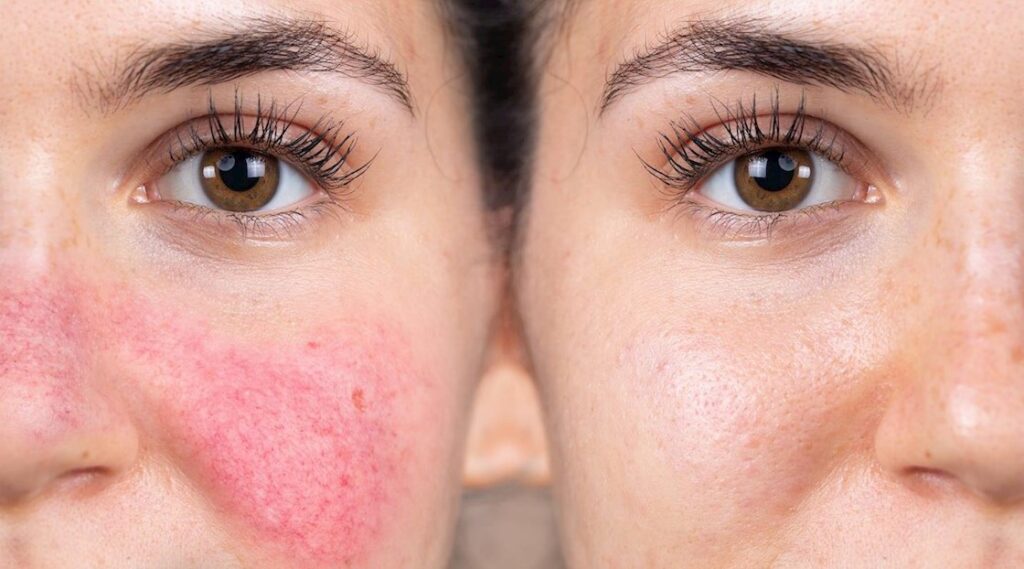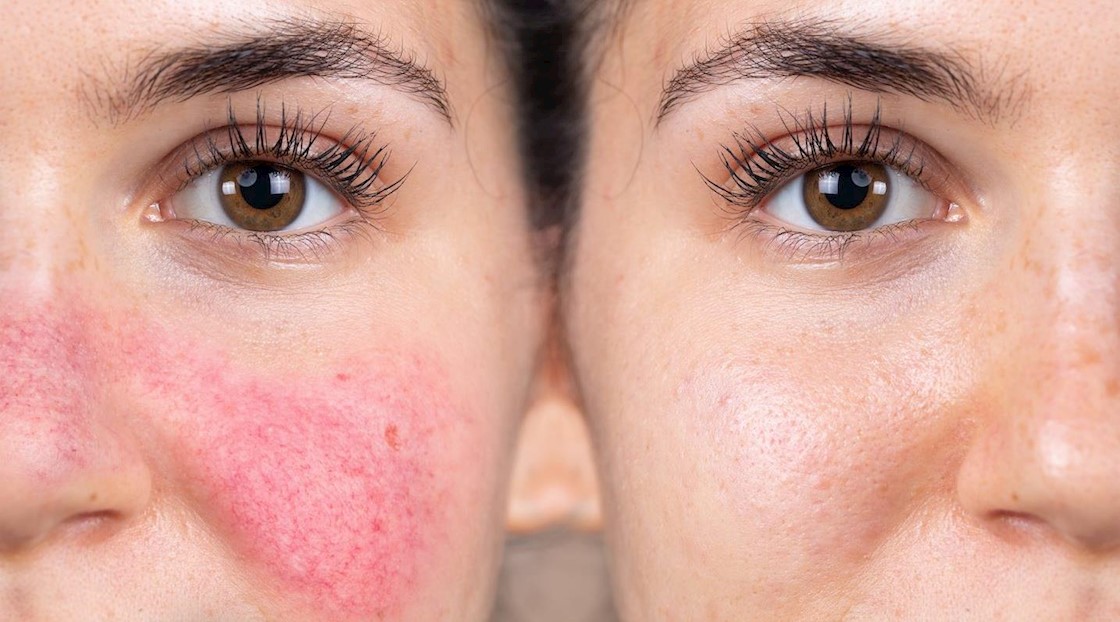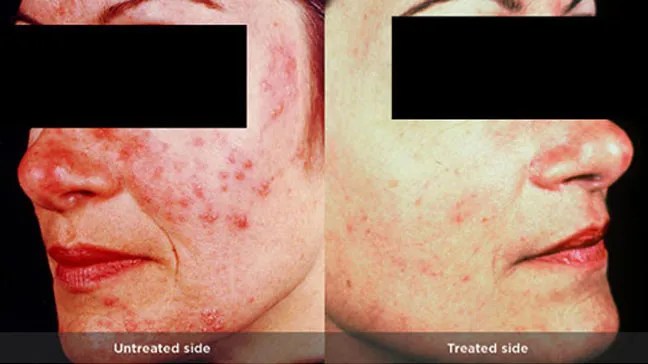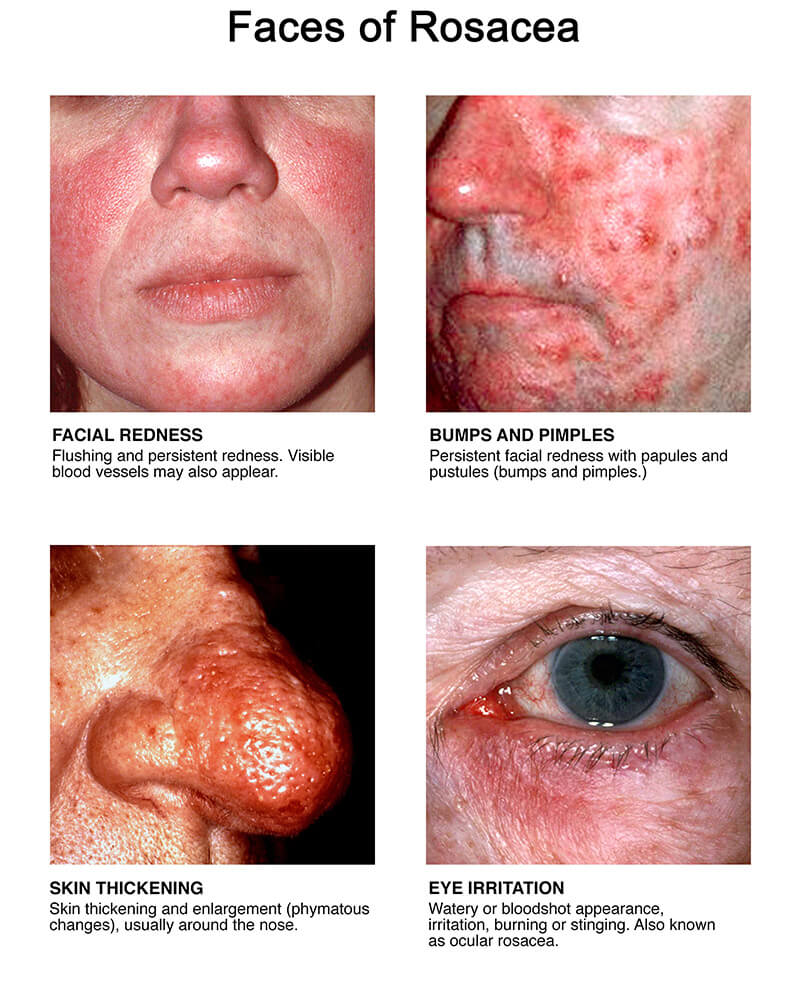Fort Walton Beach, FL
428 Mary Esther Cut Off NW Unit A,
Fort Walton Beach, FL
32548, United States
(850) 374-3595
Discover everything you need to know about rosacea and its treatment options. Manage and minimize symptoms with expert guidance from The Beauty Experts.

Have you ever heard of a skin condition called rosacea? It’s a common but often misunderstood condition that affects millions of people worldwide. Rosacea causes redness, flushing, and sometimes even acne-like breakouts on the face. But don’t worry, there are treatments available to help manage and minimize the symptoms. If you’re curious to learn more about rosacea and how it can be treated, look no further than The Beauty Experts. Located in Mary Esther, FL, The Beauty Experts, owned and operated by Tilly Souriyseng, offers expert guidance and solutions for various skin concerns, including rosacea. With a range of services and personalized techniques, they can help you regain confidence and achieve healthier-looking skin. Contact The Beauty Experts at (850) 226-7278 or visit their website to find out more about their treatment options.
This image is property of my.clevelandclinic.org.
Rosacea is a chronic and inflammatory skin condition that primarily affects the face. It is characterized by redness, visible blood vessels, and the formation of small bumps and pus-filled spots on the skin. Rosacea can also cause eye irritation and dryness. While the exact cause of rosacea is unknown, it is believed to be a combination of genetic and environmental factors. Although it cannot be cured, there are various treatments available to manage the symptoms and minimize flare-ups.
One of the most common signs of rosacea is persistent facial redness, especially on the cheeks, nose, forehead, and chin. The redness can vary in intensity and may come and go, often triggered by certain factors like temperature changes, sunlight exposure, or emotional stress.
Rosacea can lead to the formation of small, red bumps that resemble acne. These bumps may contain pus and can be tender or swollen. They often appear in clusters and can take a long time to heal.
As rosacea progresses, it can cause the blood vessels on the face to become more visible. This can give the skin a flushed or blotchy appearance, particularly on the nose and cheeks. These blood vessels may also be prone to easy bruising and may appear more prominent after exposure to triggers.
Many individuals with rosacea experience a burning or stinging sensation on their skin. This discomfort can occur both during flare-ups and in between episodes. It can be accompanied by itching or a tight sensation in the affected areas.
Rosacea can also affect the eyes, causing symptoms such as dryness, grittiness, redness, and sensitivity to light. In severe cases, it may even lead to blurred vision or the development of ocular rosacea, which requires specialized treatment.
To diagnose rosacea, a medical professional will perform a thorough physical examination of your skin and eyes. They will look for specific signs and symptoms, such as persistent redness, the presence of bumps or pustules, and visible blood vessels. They may also inquire about your medical history and any triggers that may exacerbate your symptoms.
Providing your medical history is crucial in diagnosing rosacea. Your doctor will ask about your past and present medical conditions, including any skin-related issues. They will also inquire about your family history, as rosacea is believed to have a genetic component. Be prepared to discuss any medications or treatments you have tried in the past as well.
Rosacea shares some similarities with other skin conditions, such as acne, eczema, or lupus. Therefore, it is essential to rule out other potential causes of your symptoms. In some cases, your doctor may refer you to a dermatologist or ophthalmologist for further evaluation and specialized testing.
Identifying and avoiding triggers can help minimize flare-ups and manage rosacea effectively. Some common triggers include exposure to sunlight, hot or cold weather, spicy foods, alcohol consumption, emotional stress, wind, and certain skincare products. It is essential to pay attention to your individual triggers and take steps to avoid them.
To prevent flare-ups, you can incorporate certain lifestyle changes and habits into your routine. Protect your skin from the sun by wearing a broad-spectrum sunscreen with an SPF of at least 30 and seeking shade when the sun is at its peak. Avoid excessive heat or cold exposure, and make sure to cleanse your face gently with mild, non-irritating products. It may also be helpful to keep a diary to track your triggers and identify patterns.

This image is property of d1ooscleda9ip9.cloudfront.net.
Topical medications prescribed for rosacea can help reduce redness, inflammation, and the appearance of bumps and pimples. These creams and gels often contain ingredients like metronidazole, azelaic acid, or sulfur, which have anti-inflammatory and antibacterial properties. Your doctor will determine the most suitable prescription based on your symptoms and needs.
Choosing the right skincare products can play a significant role in managing rosacea. Look for gentle cleansers that are free of harsh ingredients like fragrances, alcohol, or dyes. Opt for a moisturizer specifically formulated for sensitive or rosacea-prone skin to keep your skin hydrated and avoid dryness.
Since sun exposure is a common trigger for rosacea flare-ups, it is crucial to incorporate a sunscreen into your daily skincare routine. Choose a broad-spectrum sunscreen with physical blockers like zinc oxide or titanium dioxide, as these are less likely to irritate the skin. Apply it generously and reapply every two hours, especially when spending time outdoors.
Oral antibiotics are often prescribed for moderate to severe cases of rosacea. These medications help reduce inflammation, control bacterial growth, and relieve symptoms such as bumps and pustules. Commonly prescribed antibiotics for rosacea include tetracycline, doxycycline, and minocycline.
In rare cases, oral isotretinoin may be prescribed for severe cases of rosacea that do not respond to other treatments. Isotretinoin is a powerful medication that reduces oil production and inflammation in the skin. However, it can have significant side effects and requires close monitoring by a healthcare professional.
Certain blood pressure medications, such as beta-blockers and alpha-agonists, have been found to be effective in managing facial redness associated with rosacea. These medications work by constricting the blood vessels, reducing redness and flushing. However, they should only be used under medical supervision as they can have side effects.

This image is property of i0.wp.com.
Intense Pulsed Light (IPL) therapy uses high-intensity light to target and reduce redness, visible blood vessels, and other signs of rosacea. The light energy is absorbed by the blood vessels, causing them to collapse and fade over time. IPL treatments are usually scheduled in a series of sessions, depending on the severity of the condition.
Pulsed Dye Laser (PDL) is another laser treatment option for rosacea. This laser emits a concentrated beam of yellow light, which is absorbed by the blood vessels in the skin. The heat from the laser damages and seals off the blood vessels, reducing redness and flushing. PDL treatments are generally well-tolerated and can be an effective option for certain types of rosacea.
Fractional laser resurfacing is a more aggressive treatment option for rosacea that also addresses skin texture and scarring. It uses laser energy to create tiny ablative or non-ablative channels in the skin, stimulating collagen production and improving overall skin appearance. Fractional laser resurfacing may require multiple sessions and downtime for recovery.
Green tea has anti-inflammatory and antioxidant properties that can help reduce redness and soothe the skin. You can apply cooled green tea bags directly to the affected areas or use green tea-infused products as part of your skincare routine.
Chamomile is known for its calming properties and can help alleviate the symptoms of rosacea. You can use chamomile tea bags as a compress or incorporate chamomile-infused skincare products into your routine.
Oatmeal has soothing and anti-inflammatory properties, making it an excellent ingredient for relieving itchiness and irritation associated with rosacea. You can take oatmeal baths or use oatmeal-based products to calm your skin.
Licorice extract contains compounds that have anti-inflammatory effects and can reduce redness and irritation. Look for skincare products containing licorice extract or use it topically as a natural remedy.

This image is property of www.rosacea.org.
When cleansing your face, use a gentle, non-foaming cleanser that is specifically formulated for sensitive or rosacea-prone skin. Avoid harsh scrubbing or exfoliating, as it can further irritate the skin. Pat your face dry with a soft towel instead of rubbing.
Keeping your skin hydrated is essential in managing rosacea. Choose a moisturizer that is oil-free, non-comedogenic, and fragrance-free. Apply it gently to your face after cleansing and throughout the day as needed to maintain hydration.
When selecting skincare products, opt for those that are free of fragrances, dyes, alcohol, and other potentially irritating ingredients. Look for formulations labeled as suitable for sensitive skin or specifically designed for rosacea. Patch test new products before applying them to your entire face to check for any adverse reactions.
Stress is a common trigger for rosacea flare-ups, so it is important to incorporate stress management techniques into your daily routine. Practice relaxation exercises, such as deep breathing or meditation, engage in regular physical activity, and seek support from friends, family, or professionals.
While no specific diet has been proven to cure or prevent rosacea, certain foods and beverages can trigger symptoms in some individuals. Spicy foods, hot drinks, alcohol, and caffeine are common triggers. Keep a food diary to identify any patterns between your diet and your rosacea flare-ups and make adjustments as needed.
Alcohol consumption is a known trigger for rosacea symptoms in many individuals. Reducing or eliminating alcohol intake can help manage your condition and prevent flare-ups. If you choose to drink, do so in moderation and be aware of any adverse effects it may have on your skin.
In conclusion, rosacea is a chronic skin condition that can cause redness, visible blood vessels, bumps, and eye irritation. It can be managed through various treatments, including topical creams, oral medications, laser and light therapies, and natural remedies. Identifying and avoiding triggers, following a gentle skincare routine, and incorporating lifestyle changes can also help minimize symptoms and improve quality of life for individuals with rosacea. If you suspect that you may have rosacea, it is best to consult with a healthcare professional for an accurate diagnosis and personalized treatment plan.